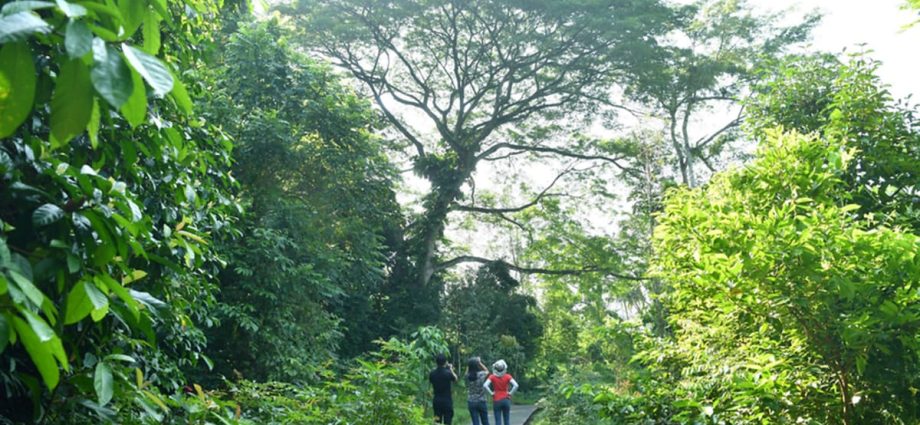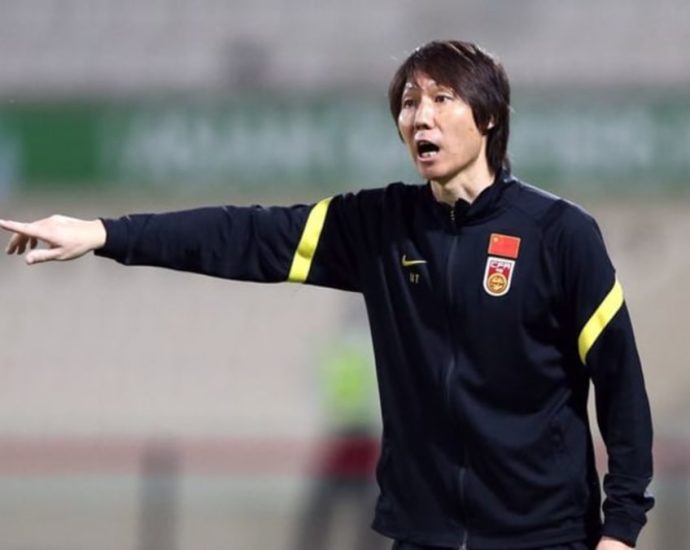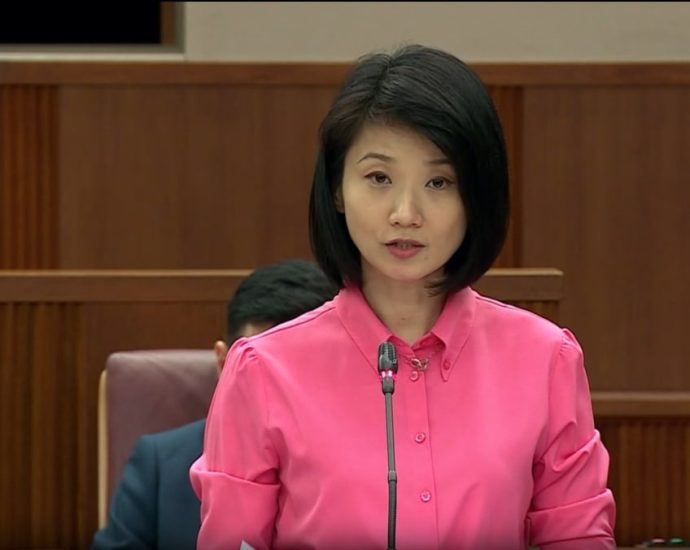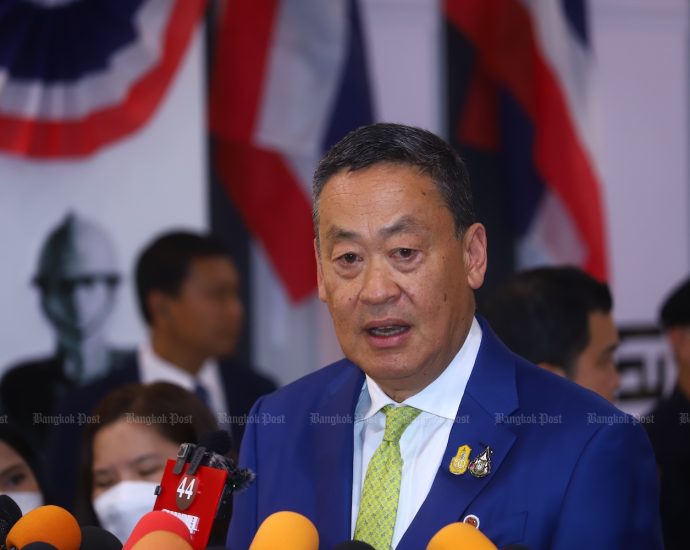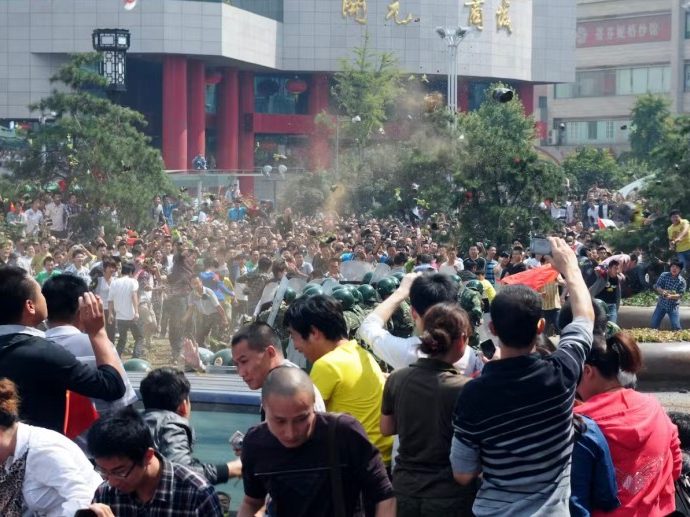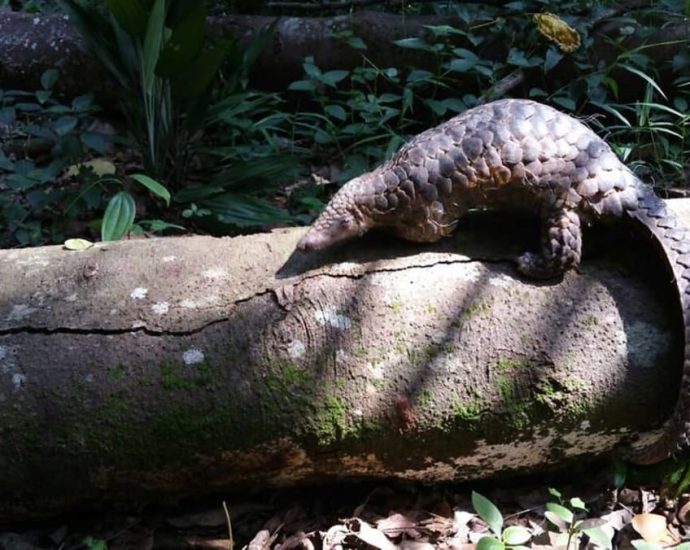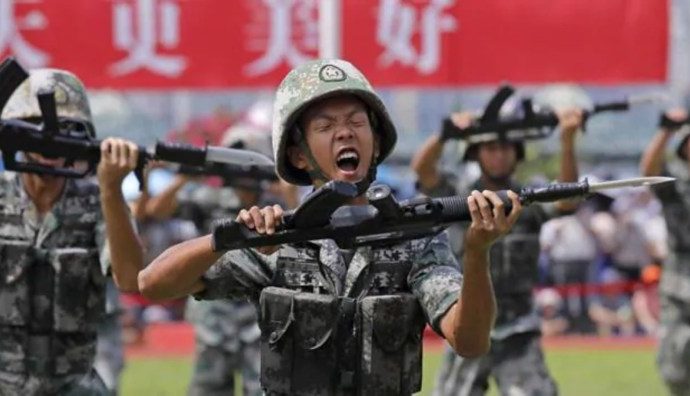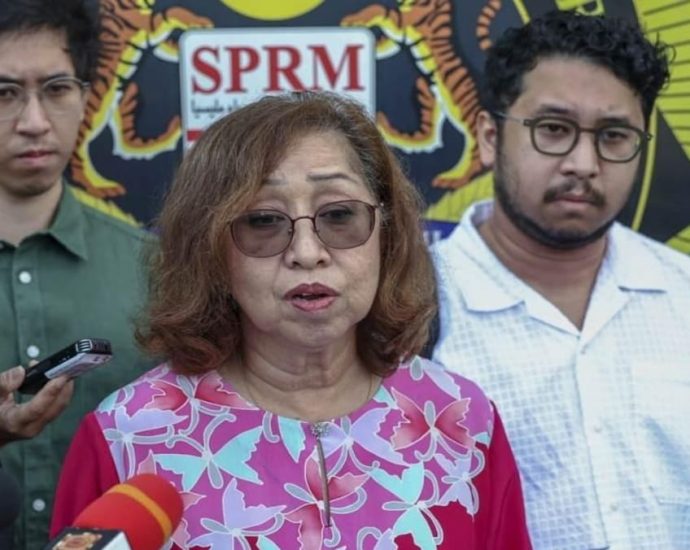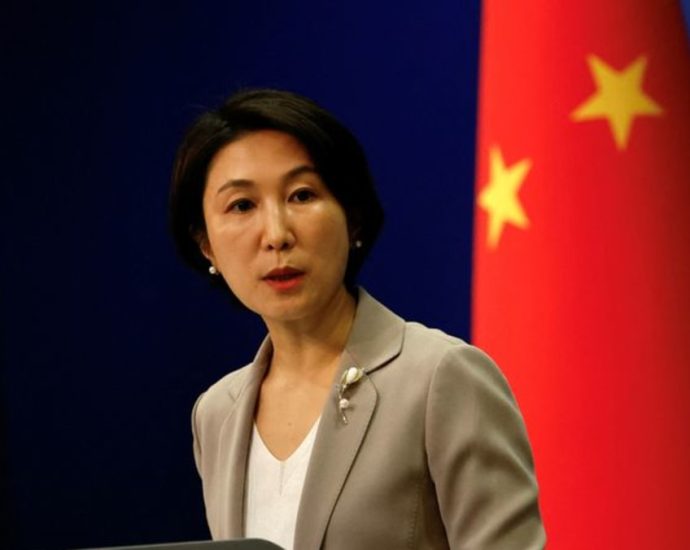Stronger winds may bring breezier days to Singapore, but also danger from falling trees
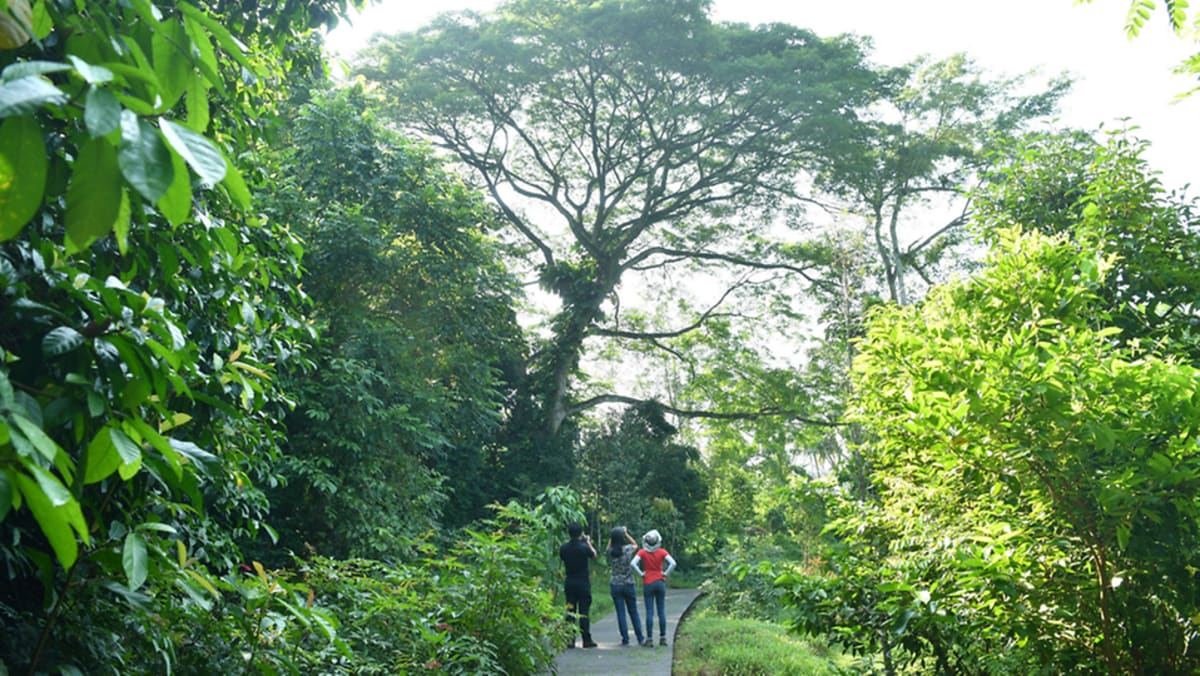
He told CNA938 on Monday (Jan 8) that the project was conceptualised as there has been a lack of such research specifically focusing on Southeast Asia.
Globally, higher temperatures and frequency of drought events have led to an uptick in the death of big trees, which are important to the ecosystem as they store most of the carbon emissions, said Asst Prof Lim.
“One of the main reasons we put together this research proposal is to try to understand whether or not this global process is also happening within Singapore,” he said.
“If the big trees die, they open up new spaces within the tropical forests. So in the short term, you might lose a lot of carbon and potentially diversity.”
He added that in tropical forests, like those in Singapore, various tree species are competing with each other for resources such as light and water.
“So whenever the climate changes in any way, there will always be winners and losers. There will be some tree species that might perform less well in the new environment, and some trees that will perform a little bit better,” he said.
Former China football coach Li Tie says paid bribes for job in TV confession
PAYING FOR THE JOB When he took the national coach job in January 2020, Li declared he had achieved one of his “biggest dreams”. But Tuesday’s documentary painted a less wholesome picture. It said Li had asked Wuhan Zall Football Club – where he then worked as coach – toContinue Reading
Tech platforms responding with âvarying degrees of urgencyâ to policeâs requests on scams: Sun Xueling
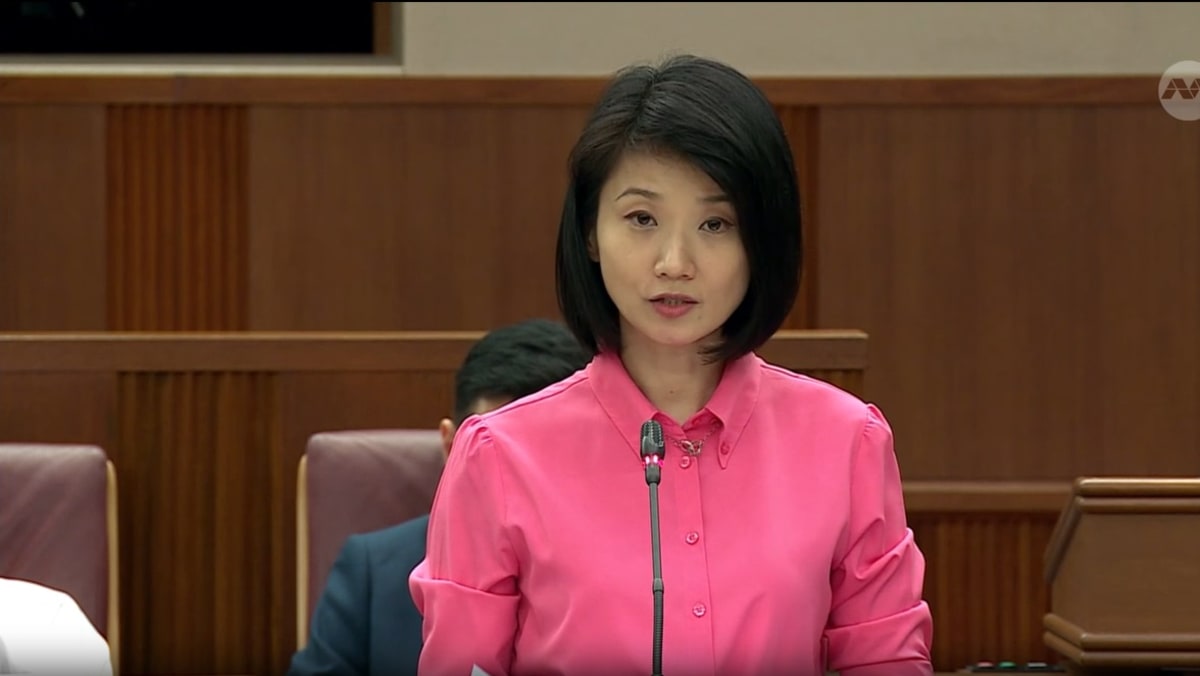
SINGAPORE: The government is working with technology giants to tackle a new phishing scam that uses fake WhatsApp Web websites, but these platforms have “responded with varying degrees of urgency”, said Minister of State for Home Affairs Sun Xueling on Wednesday (Jan 10).
For example, the Singapore Police Force (SPF) is working with Meta, which owns WhatsApp, to stop further abuse of compromised WhatsApp accounts as soon as they are detected. But Meta has “on some occasions required more time” to recover these compromised accounts, Ms Sun said.
“We intend to work even closer with Meta and to highlight to them that we need them to do more,” she added. “They need to respond more quickly to our requests, to be more effective and efficient in recovering compromised WhatsApp accounts and disabling the service if it is part of a scam.”
The police are also working with online platforms, including Google, to introduce stronger safeguards to mitigate the risk of fraudulent takeover of online messaging accounts, such as through the pre-emptive detection and blocking of URLs linked to phishing websites.
Srettha âjust explainedâ rate view to BoT
‘No power to interfere’ in decisions, PM says after meeting with central bank chief

Prime Minister Srettha Thavisin says he “just explained” his views on interest rates but gave no orders during a highly anticipated meeting on Wednesday with the head of the Bank of Thailand.
“I have no power to interfere” in rate decisions, Mr Srettha told reporters after his talks with central bank governor Sethaput Suthiwartnarueput.
“The BoT is an independent organisation. I haven’t ordered. I just explained the situation.”
The talks came two days after Mr Srettha, who is also the finance minister, publicly urged the central bank to start cutting borrowing costs following months of negative inflation.
The discussions covered interest rates and the economic situation, Mr Srettha said. He acknowledged that the meeting was in no way an exercise to reduce the central bank’s autonomy.
There was no immediate response from Mr Sethaput, but the BoT has scheduled a briefing on Monday to explain its policies.
Mr Srettha said he explained to Mr Sethaput the current economic situation. Southeast Asia’s second-largest economy has been staging the region’s slowest recovery post-pandemic, while inflation has been in negative territory for three straight months through December amid signs of waning demand.
The baht was little changed on a day when most major Asian currencies were down versus the US dollar.
While Mr Srettha believes that cheaper borrowing costs are needed to boost credit demand, and in turn economic activity, the BoT has in the past maintained that the deflationary trend is a result of state subsidies, most notably for electricity and fuel, and is not an accurate reflection of falling consumption.
The central bank paused its tightening campaign in November after eight straight rate increases totalling 200 basis points to a decade-high of 2.50%.
It will hold its next meeting on Feb 7 but so far has not signalled any readiness to start reducing interest rates.
“We maintain our forecast that the BoT will keep the policy rate on hold for the foreseeable future,” said Standard Chartered Bank economist Tim Leelahaphan. “However, we believe risks are increasingly skewed towards a cut in 2024.”
Mr Srettha also said on Wednesday that he would brief the central bank head about the government’s proposed economic stimulus programme at a separate meeting.
Mr Sethaput has expressed some reservations about the 500-billion-baht digital wallet programme, the cornerstone of the government’s stimulus plan.
The economy is forecast to expand by 3.2% this year, up from an estimated 2.5% in 2023, according to the World Bank. Mr Srettha wants to lift that pace to 5% during his term.
MSF to launch standardised tools for frontline workers to better detect, report domestic violence

Ms Sun told the House about the various steps taken in the adoption process to ensure a child’s welfare and best interests, including an adoption suitability assessment that prospective adoptive parents have to undergo.
Social workers and professionals at children’s homes also receive compulsory training to recognise signs and symptoms of abuse, including sexual abuse, said Ms Sun, who is also a Minister of State for Home Affairs.
She further noted that those working at children’s homes are screened for prior criminal records before coming into contact with children.
In the recent court case, these procedures were followed – the offender did not have a criminal record.
Ms Nadia then asked Ms Sun for more details on the number of volunteers who have been assessed to be suitable for the “kith caregiver” scheme.
The offender in that case, as well as his wife, were formally appointed as kith caregivers by MSF while the adoption process was ongoing.
Kith caregivers are non-familial adults known to a child through family or community connections, and they are not registered as foster parents.
Ms Nadia also asked if there are any measures that homes and MSF are putting in place to prevent similar cases from occurring.
In response, Ms Sun reiterated that the ministry conducted background checks on the offender and his wife. They were also assessed by professionals as capable of providing adequate and safe care for the girl.
Volunteers in MSF-funded programmes must also undergo suitability assessments and background checks, said Ms Sun.
In terms of training courses that children’s home staff undergo, Ms Sun said this includes introductions to a child abuse reporting guide and Singapore’s child protection framework, among other things.
Xi’s Taiwan saber-rattling all about self-preservation
In his New Year address, Chinese President Xi Jinping claimed that Taiwan would “surely be reunified” with China.
Against the backdrop of increased Chinese military posturing in the Taiwan Strait, some Western journalists are framing Xi’s remarks as an overt and direct threat against Taiwan. They argue that Xi’s rhetoric validates concerns about a potential invasion.
This framing misses the point and overlooks the domestic political context of Xi’s speech. Xi also celebrated the successes of the Chinese nation and economy, while acknowledging the economic struggles of the Chinese people. Rather than threatening Taiwan, this rhetoric is intended to protect Xi’s regime.
Western governments draw their legitimacy from a popular mandate, which is established through elections. The legitimacy of the Chinese Communist Party (CCP) to govern China is also premised on a mandate. But instead of through elections, this mandate is established through the party’s record on ensuring continued economic prosperity and national success.
In this context, Xi’s emphasis on economic growth and the nation should be considered performative – an example of political theatre portraying the CCP in a carefully curated way for a Chinese audience.
Following the Cultural Revolution (which had disastrous consequences for China’s people and economy) and Mao’s death in 1976, the CCP re-established its legitimacy on the twin pillars of economic prosperity and nationalism.
Former leader Deng Xiaoping secured the economic pillar in the 1980s through reforms that raised 800 million people out of poverty. The nationalist pillar involved retelling Chinese history. The regime emphasized historical achievements, commemorated national struggles and portrayed the CCP as the vanguard of the Chinese nation.
Under Mao, Japan’s invasion of China in the Second Sino-Japanese War (the Chinese theater of the Second World War) was presented as an ideological class struggle.
According to this narrative, both Chinese and Japanese workers were exploited by militaristic bourgeois elites. Nowadays, China’s nationalist narrative presents Japan as a foreign oppressor that China heroically resisted and overcame under the CCP’s leadership.
Such narratives of Chinese history have resulted in a contemporary Chinese nationalism sensitive to what it considers renewed victimization of the Chinese nation. This includes international opposition to reunification with Taiwan, a historic province of China.
Kneejerk nationalism
As China’s economy slows, the CCP has become increasingly reliant on the nationalist pillar to retain its legitimacy. This limits the CCP’s options in nationalistic disputes as it must act in such a way that upholds its nationalist credentials.
In 2005, China saw large anti-Japanese protests triggered by Japan’s downplaying of the atrocities it committed during its invasion of China. Within the context of 11.4% economic growth, the CCP shut down public transport to block protesters from arriving in the largest cities and officials condemned the protests.
But, by 2012, China’s economic growth had slowed to 7.9%. And the CCP was notably silent during similarly large anti-Japanese protests over the Senkaku Islands (known as the Diaoyu Islands in China) – a territorial dispute in the East China Sea associated with the second Sino-Japanese War.
China’s nationalist movement criticized the CCP for being too soft on Japan, prompting then vice-president Xi to publicly renounce Japan’s territorial claim. This constitutes a performative acquiescence to nationalist pressure, with Xi acting to secure the nationalist pillar while the economic pillar faltered.

Xi’s mention of national reunification with Taiwan in his New Year address is in keeping with the CCP’s increased reliance on nationalism to secure legitimacy as China’s economy slows.
This can also explain China’s posturing in the Taiwan Strait. China experienced 3% economic growth in 2022, the lowest growth rate since Deng’s reforms (excluding the height of the Covid pandemic). So to deflect scrutiny, the CCP is intensifying its embrace of brinkmanship in the Taiwan Strait.
Ultimately, this brinkmanship is unlikely to culminate in a war considering how an invasion could backfire on the CCP. In the event of an unsuccessful invasion, the CCP would suffer significant damage to its reputation. Even a successful but prolonged conflict with heavy losses would have a similar effect.
Either way, the near-certain economic consequences, such as sanctions and embargoes, would topple the party’s economic pillar.
Economic shortcomings
More interesting than Xi’s talk of reunification is his admission of the economic struggles of the Chinese people. In his address, Xi explained that “some people had difficulty finding jobs and meeting basic needs.”
There is very little precedent for acknowledging the shortcomings of the CCP’s delivery of economic prosperity. Doing so contradicts the economic pillar.
It is particularly odd given that the CCP has recently suppressed negative commentaries on China’s economy to avoid damaging public confidence in its economic stewardship.
As brinkmanship in the Taiwan Strait reaches its limits, it seems the CCP is shifting away from an over-dependence on the nationalist pillar. Instead, it may be pursuing a less immediately risky strategy, acknowledging current economic issues while emphasizing the potential for economic growth under the CCP.
This approach would be a safer way to maintain the party’s legitimacy than escalating tensions in the Taiwan Strait. Xi’s speech indicates a changing nuance in CCP discourse – one that may become increasingly apparent over the coming year.
Lewis Eves is Teaching Associate in Politics and International Relations, University of Sheffield
This article is republished from The Conversation under a Creative Commons license. Read the original article.
RSAF regular admits picking up pregnant pangolin from park connector and selling it

Tan found a buyer in co-accused Lee Kian Han, a 35-year-old Singaporean man, and agreed to sell him the pangolin for S$1,400.
They met at about 2am on Jul 4, 2023 at a Housing Board block in Jurong West where Lee paid him for the animal via PayNow.
That same day, the National Parks Board (NParks) seized the pangolin from Lee after detecting the advertisement on Telegram.
An NParks officer met Lee in a covert operation, after offering to buy the pangolin for S$1,600.
Tan was arrested at his home and the pangolin was taken to a centre for wildlife rehabilitation and examination.
An NParks vet identified it as a Sunda pangolin, a protected species. An animal health assessment report found the creature to be pregnant and “very hungry” on admission.
The prosecutor said NParks has been unable to recover the sum of S$1,400 from Tan to date. At the last hearing, the prosecution had indicated that they would ask for a fine of S$8,000 to S$10,000.
Tan’s lawyer, Mr Kalidass Murugaiyan, highlighted that his client has been donating to Wildlife Conservation Society monthly.
The judge then asked why doesn’t Tan make a donation of S$1,400 to cover the sum. The defence lawyer said he would liaise with the prosecutor on this.
The judge called for reports assessing Tan’s suitability for probation and community service and adjourned the case to Feb 29 for sentencing.
For selling a protected wildlife species, an offender can be jailed for up to two years, fined up to S$50,000, or both.
CNA has contacted MINDEF for more information.
Taiwan election could decide whether China invades
When the votes are being tallied in Taiwan’s presidential election, it won’t be only the 23.6 million inhabitants of the island eagerly awaiting a result – in Beijing and Washington, too, there will be some anxious faces.
The vote of January 13, 2024, is seen as a litmus test for the future of cross-strait relations, coming at a time when the status quo over Taiwan – a territory Beijing claims as an integral part of “one China” – is being challenged.
If Taiwan’s incumbent, independence-oriented party stays in power, Chinese leader Xi Jinping might feel he has no choice but to force the issue of reunification.
Conversely, if the opposition – which agrees with Beijing that Taiwan and the mainland are part of “one China” but not about who governs it – wins, Beijing might feel it has more space to be patient on the issue.
In the run-up to the vote, Beijing has ramped up military exercises in and around the Taiwan Strait in an apparent warning to Taiwanese voters. On January 6, in one of the most recent incidents, China sent a series of balloons over the island, which the Taiwan government cited as a threat to air travel and an attempt at intimidation.
Meanwhile, in his annual New Year’s address, Xi stated that “China will surely be reunified,” raising fears internationally that he intends to pursue the issue militarily if necessary.
For Washington, too, the outcome of the vote will have implications. The United States has cultivated strong ties with the current leadership of Taiwan. But recent tensions in the strait have raised the risk of war.
US actions deemed provocative by Beijing, such as the 2022 visit of then-Speaker of the House Nancy Pelosi to Taiwan, have resulted in China upping its military threats in the strait. And this has raised speculation that China’s patience is growing thin and its timeline for reunification is growing shorter.

Meanwhile, questions about the US capacity to respond to any Chinese aggression over Taiwan have risen; the specter of war in a third region of the world – after Ukraine and Israel – worries national security leadership in Washington.
Independence on the ballot?
The presidential election in Taiwan has come down to a three-way race. The front-runner is current Vice President William Lai, who is the candidate of the Democratic Progressive Party. The DPP views Taiwan as a sovereign country and does not seek reunification with China.
Lai’s challengers are New Taipei City mayor Hou Yu-ih, of the Kuomintang (KMT), and Ko Wen-je, a former mayor of Taipei running for the center-left Taiwan People’s Party (TPP). The KMT embraces the idea of future reunification with China under a democratic government.
The TPP criticizes both DPP and KMT platforms on cross-strait relations as too extreme and seeks a middle ground that maintains the status quo: A Taiwan that is de facto sovereign but with strong economic and cultural ties with China.
Taiwan law mandates that no polls are published in the 10 days before the election. As of Jan. 3, when the final polls were published, averages had Lai leading with 36%, with Hou at 31% and Ko at 24%.
Lai has consistently led in the polls, prompting the KMT and TPP to earlier consider running on a joint ticket. But the two parties failed to agree on terms, and the coalition attempt imploded.
This may prove crucial, as joining forces may have represented the best chance of a KMT candidate being elected – an outcome that may have cooled tensions with Beijing.
Taiwanese democracy
The island of Taiwan has been governed as the “Republic of China” since 1949 when the KMT lost a civil war to the Chinese Communist Party. The CCP set up the People’s Republic of China on the mainland, and the KMT retreated to Taiwan.
For decades, both the Republic of China and the People’s Republic of China diverged on every possible policy except one: Both governments agreed that there was only one China, and that Taiwan was a part of China. They each sought to unite Taiwan and the mainland – but under their own rule.

Although that remains the goal in Beijing today, for Taiwan the outlook has started to change.
The change began with Taiwanese democratization – a process that began in the early 1990s after decades of autocratic rule. After gradually rolling out direct elections for the legislature, governors and mayors, the island held its first democratic election for president in 1996.
Despite Beijing holding military exercises in the Taiwan Strait in an attempt to interfere with the vote, the KMT-affiliated incumbent won against a DPP candidate with strong ties to the Taiwan independence movement.
Four years later, the DPP’s candidate won and started the first of two consecutive terms. In 2008, a KMT candidate returned to power. But since 2016, Taiwan has been led by Tsai Ing-wen of the DPP.
Cross-strait tensions tend to rise when the DPP is in office and calm somewhat when the KMT is in power. This isn’t because the KMT agrees with Beijing over the status of Taiwan – the party has always been clear that unification could happen only under its own government and never under the leadership of the Communist Party in Beijing. But the KMT affirms the idea that eventual unification with China is its goal for Taiwan.
In 1992, representatives of the KMT and the CCP met in Hong Kong and reached the “1992 Consensus.” Despite the name, the two sides do not fully agree on what it meant. The KMT affirmed the idea of one China but noted disagreement on what the government of that China should be; the People’s Republic of China interpreted it as affirming one China under CCP rule.
Still, the 1992 Consensus became the basis of a series of policies strengthening cross-strait ties, and it made KMT-led governments easier for the PRC to tolerate.
Pro-independence sentiment
Though speculation about the geopolitical fallout and China’s reaction to the election has dominated coverage of the vote around the world, for Taiwan voters, independence is one of several critical issues the island faces.
The economy frequently rises even above cross-strait issues in importance, with many voters expressing concern over the rapid rise of housing prices, stagnating salaries, slow economic growth and how the incumbent party handled the Covid-19 pandemic.
On the issue of independence itself, Taiwanese polls have shown a creep toward pro-independence sentiment. As of September 2023, nearly half of Taiwanese voters said they preferred independence (48.9%) for the island, while 26.9% sought a continuation of the status quo. A shrinking minority – now just 11.8% – said they hoped for future reunification.
If the DPP remains in power, Beijing may feel the pressure to force the issue of reunification.

Xi has called for the Chinese military to be capable of a successful cross-strait invasion by 2027, though a forceful reunification effort might include a combination of economic blockade and military pressure.
If that were to be the case, US commitments to Taiwan – along with US credibility among its Asian allies – could be on the line. President Joe Biden has repeatedly said that he is prepared to defend the island militarily against an attack from mainland China.
Already in 2024, the US is having to contend with two significant conflicts that are demanding its attention. How Taiwanese voters mark their ballot – and how policymakers in Beijing respond – may determine whether a third war is more or less likely.
Meredith Oyen is Associate Professor of History and Asian Studies, University of Maryland, Baltimore County
This article is republished from The Conversation under a Creative Commons license. Read the original article.
Wife and sons of former Malaysian finance minister Daim Zainuddin assisting in anti-graft investigations

PUTRAJAYA: The wife of Mr Daim Zainuddin and their two sons are assisting in Malaysia’s anti-graft agency’s investigations against the country’s former finance minister.
The three arrived at the Malaysian Anti-Corruption Commission (MACC) headquarters in Putrajaya on Wednesday (Jan 10) morning to give their statements in the probe against Mr Daim, who is the subject of an anti-graft investigation.
Mr Daim had earlier accused Malaysian Prime Minister Anwar Ibrahim of initiating a “political witch-hunt” against him and warning that he will take “appropriate action in due course”.
In a brief statement to members of the media before entering the MACC premises, Mdm Nai’mah Abdul Khalid said she and her sons would give their full cooperation to the agency as required by the law.
When contacted by Bernama, MACC’s Anti-Money Laundering Division’s director Mohamad Zamri Zainul Abidin confirmed that the agency took statements from the three to facilitate investigations under Malaysia’s anti-money laundering laws.
In December, MACC said the investigation against Mr Daim was based on information obtained from the Pandora Papers – a trove of documents, leaked in 2021, that revealed the hidden wealth of world leaders, billionaires and celebrities who used offshore companies to acquire mansions, private jets and stakes in companies.
Mr Daim had said in the wake of the leak that his business dealings, as revealed in the Pandora Papers, were legitimate. He added that he was a “successful and wealthy” businessman long before he entered politics and that taxes had been fully paid for his businesses and income.
In the same month, CNA reported that the multi-million-dollar Ilham Tower, a prime commercial building owned by the Daim family, was seized after he refused to declare his and his family’s financial holdings.
China says Taiwan ruling party ‘creating panic’ after satellite alert
BEIJING: China on Wednesday (Jan 10) accused Taiwan’s ruling party of “creating panic” after the island’s authorities issued a national emergency alert over a satellite launch by Beijing. Phones across Taiwan blared with a “presidential alert” on Tuesday afternoon, around the time Beijing announced the successful launch of its Einstein ProbeContinue Reading

